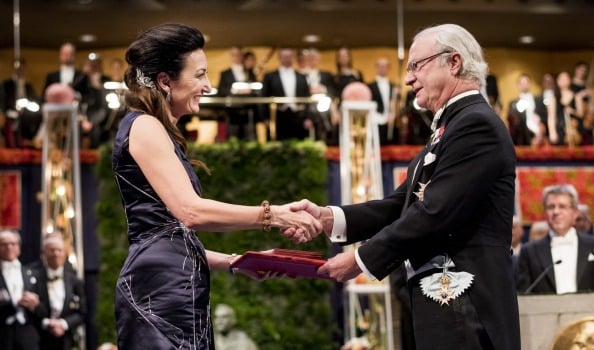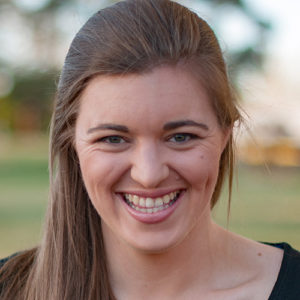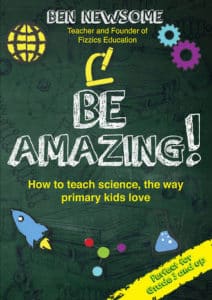In 2015, the United Nations proclaimed February 11th the International Day of Women and Girls in Science. Today, I’m looking back over the strong STEM women I looked up to as a child, and who changed my life for the better.
As a child, I looked up to women who were leading the way and breaking down the ‘barriers’ ahead of them. My family actively broke down the stereotype of the geeky person you see on TV. It’s always a white nerdy guy with big coke bottle glasses, sitting in the corner with no friends. I was told I could do anything I wanted to do – and would be supported to do that. Not everyone is as lucky.
I became inspired by Marie Curie’s work with radioactive materials, and the early work in computer science done by Ada Lovelace. I did research on Russian cosmonaut Valentina Tereshkova and chemist Rosalind Franklin. These scientists became my ‘celebrities of science’. I would spend hours reading science magazines and books in the library at school. These women proved to me that, no matter what the stereotypes I might see on television and in movies, I could work in the sciences and make a difference to the world.
All of this inspiration led me to study nanotechnology and chemistry and, now, to work in STEM communication. Role models were (and are) so pivotal in my life that I now seek out opportunities to mentor and inspire other young women in science – because nobody should miss out on the opportunity to follow whatever dream they may have.

May-Britt Moser at Nobel Prize Ceremony – Photo Alexander Mahmoud/Nobel Media
With men you’re expected to do well and get the support, but for females, you have to sacrifice something in a different way from men… I think it’s very important for other woman to see that I have had success.”
– May-Britt Moser, neurologist and winner of the 2014 Nobel Prize in Physiology or Medicine
In the spirit of role models, I want to share the story of one of my role models. She challenged expectations and changed my perspective on what I might be able to do with the rest of my life…
Attending school in the 1930s, Dr Kate Leslie was educated by nuns in a convent school, with a very limited focus on science and maths. Unusually for her day, her parents encouraged her to complete her leaving certificate (which she did at age 16). Upon finishing school, she wanted to be a woman lawyer but the Law School in Perth was closed due to the war. Undeterred, she shifted her focus and decided to become a doctor. Small problem – convent educated girls were not taught sufficient science. Undeterred, she attended night school for a year to study the subject (physics, chemistry and human biology) she would need to get accepted into medicine. At the time there was no medical school in Perth, and so she packed herself up and moved to Adelaide to continue her studies.
Her career aspirations after graduating were limited by a serious car accident, which almost required the amputation of her right arm. Undeterred she taught herself to write and do things left-handed and decide to switch to anaesthetics (which needs less fine motor skills). This required confronting another problem, as the anaesthetics specialist training wasn’t available in Australia. Undeterred she went to the UK with no job and little money, but found work as a medical registrar and qualified as a specialist anaesthetist.
She returned to Australia with a husband and a baby in the early 1950s, moved to a regional town and continued her life as the local anaesthetist, wife, mother of three children, unofficial manager of her husband’s GP practice (with the surgery in the front third of their home).
This may seem like a somewhat remarkable story of an ordinary woman. This is the story of my grandmother. She was a pivotal part of my life growing up, someone I looked up to and I still aspire to have some of her grit and determination. A woman in who challenged all the ideas of the time of where she would end up. She always was my exemplar, my role model and championed all my achievements. She was my rock through hard times. I am where I am today because of her encouragement and support and her life’s example. Sadly, she passed away in early 2015 while I was studying my Masters, but her story is something that keeps me going. To quote her obituary, it was “An extraordinary life well lived”.
We all need mentors and role models whether we admit it or not. Because if you cannot see that the path exists, then you cannot even begin. We need to be able to see the possibilities, to dream and to aim high.
For more information about International Day of Women and Girls in Science, head to www.womeninscienceday.org.
Extra resources
- Superstars of STEM by Science & Technology Australia
- Women in STEMM Australia
- Australian Initiatives Advancing Women in STEM
- STEM Women
- American University, Helping Girls Succeed in STEM
Additionally, check out these resources from the University of Central Florida, Ohio University & Maryville University to find detailed information on the following:
- Gender inequality statistics in STEM
- Tips and advice for women in STEM
- Types of STEM activities to try out for girls in K12 grades
- How teachers can build effective STEM lesson plans
- STEM resources for teachers and educators
Happy teaching,
Kate O’Sullivan
NEW Primary science teaching book!
“Be Amazing! How to teach science, the way primary kids love”



























Comments